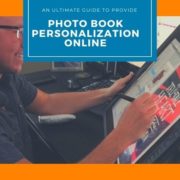
Nowadays, photography is a popular pastime and can be a wonderful hobby. It’s very fulfilling – which is the reason why so many people are trying to make it a central part of their lives. Many talented people have picked it up, either as a full-time job or as a side hustle. However, this deal of turning your favorite pastime into your job comes with strings attached.
There’s an old saying that if you make your hobby into your job, you won’t have to work a day in your life – just enjoy your hobby, all day every day. Unfortunately, in most cases taking your favorite activity to the next level involves a lot of tedious complications. Making a business plan, organizing logistics, dealing with customers, and filing tax paperwork – it all adds up.
Bookkeeping, and accounting in general, can be especially tedious. They are an inevitable aspect of doing business, and if you don’t have a knack they can turn any venture into a slog. There’s just so much to keep in mind, and so many things to keep up with, on top of actually doing the work and bringing the money in. It’s a bother, especially if you have to do all of that alongside a regular job. This is why you may want to consider getting professional accountants, such as Howlader & co. to take care of all your accounting needs.
As a freelancer, the best you can hope for is to get the tedious bits out of the way ASAP, so that you can get back to doing photography. Here’s how you do that when it comes to your accounting.
Consider Registering as an LLC
There are two ways of doing business as a freelance photographer – as a sole trader, or as an LLC. Both have their benefits and drawbacks.
A sole trader may be the better option if you’re doing freelance photography as a side hustle, or if you are only sporadically taking jobs. You still need to mind your accounting and comply with the law, but doing it as a sole trader means you can dodge the vast amount of paperwork.
Conversely, if you’re doing freelance photography full time, or are taking on big projects, your best option may be to register and start an LLC. Sure, photography may not be the riskiest of businesses, and it shouldn’t land you in debt. Still, it’s better to keep a degree of separation between your personal assets and your business assets – and an LLC will help you do that.
Open a Checking Account
If you’re doing business as an LLC, you’re going to have to open a separate bank account for the new entity you’re running. However, even if you are operating as a sole trader, your accounting will benefit tremendously from you opening a checking account.
Go to a bank and open an account for all your photography-related income and expenses to go through. This will allow you to create a degree of separation between your working budget and income and your personal cash flows and expenses. Further, you will have a much easier time sorting your books if all your business transactions are happening in one place.
Get Your Invoices Straight
Developing an invoicing system that suits your needs is one of the key aspects you need to focus on if you want your business plan to bear fruit. Working with a professional accountant is crucial here.
You certainly don’t want to waste your precious time on trivial matters such as writing every individual invoice separately. Develop a template and make a habit of being consistent in its use. Always send out your invoices on time, paying extra attention to the recipients’ responses.
Be on the lookout for payment obstacles, and incentivize upfront payments. Doing this can save you quite a bit of bookkeeping trouble.
Adopt Financial Software
All modern businesses rely on software solutions to keep track of their invoices and other financial information. By all means, keep notes for quick reference. This is definitely one of the strategies you may want to adopt that will help your accountant a lot.
When picking a software solution to help you with this, you may want to go with something simple and robust. You may want to bump user-friendliness and accessibility to the top of the priority list, and not necessarily go for all the bells and whistles. If you are still starting and don’t have a budget for a full blown financial software, you could implement a powerful accounting software that can deal with accounts payable and receivable. This will allow you to automate a nice chunk of your financial requirements but still not break your budget.
Keep in mind that you’re not going to use this to run a business empire – you don’t need to invest in software with super complex features. Go for something that’s robust, easy to use, and cost-effective. Do some due diligence, and pick what you think is the best offer for your current needs. You can always change it later.
Familiarize Yourself With Tax Rates
Tax rates vary depending on your location, and they change over time. Still, you need to be aware of them, as your need to get your accounting straight.
As of 2021, for the UK, your income tax will be zero if you fit in the “Personal Allowance” tax band, and your income is up to £12 570.
If your income is between £12 571 and £50 270, you fall into the “Basic Rate” tax band and owe 20% tax on your income.
If your income is between £50 271 and £150 000, you are in the “Higher Rate” tax band and will owe 40% tax on that income.
If you’re lucky enough to have an income of £150 000 or more, you’re going to have to pay 50% of that as income tax, as you’re in the “Additional Rate” tax band.
These numbers have shifted around a little bit since last year and will change again in the future. Make sure you check what the tax band thresholds are on the regular, especially if you don’t have an accountant to keep an eye on that for you.
Tally up all Your Expenses
There are many strategies you can put in place to maximize your income as a freelance photographer. Getting more cash flowing in is definitely something you should focus on. Still, this does not mean you should neglect other aspects of your bookkeeping that may impact your business.
Expenses are one of those things that can get mishandled if you don’t pay close attention to them. If you don’t get it right, you end up paying inordinate amounts of income tax – which is not in your interest as a business. To avoid this, track all the money going out of your business bank account.
Every last bit of cash you spend on your camera, your photography equipment, your office equipment, and your studio costs count as an expense. Licenses for video and photo editing software are also business expenses. So are the costs of organizing, traveling, and paying for other aspects of shoots.
Marketing costs, such as ad campaigns, website creation, and maintenance are also business expenses. Legal and insurance fees also qualify as expenses – as do accounting charges. Always keep all the invoices, and keep them in mind when calculating your business expenses.

